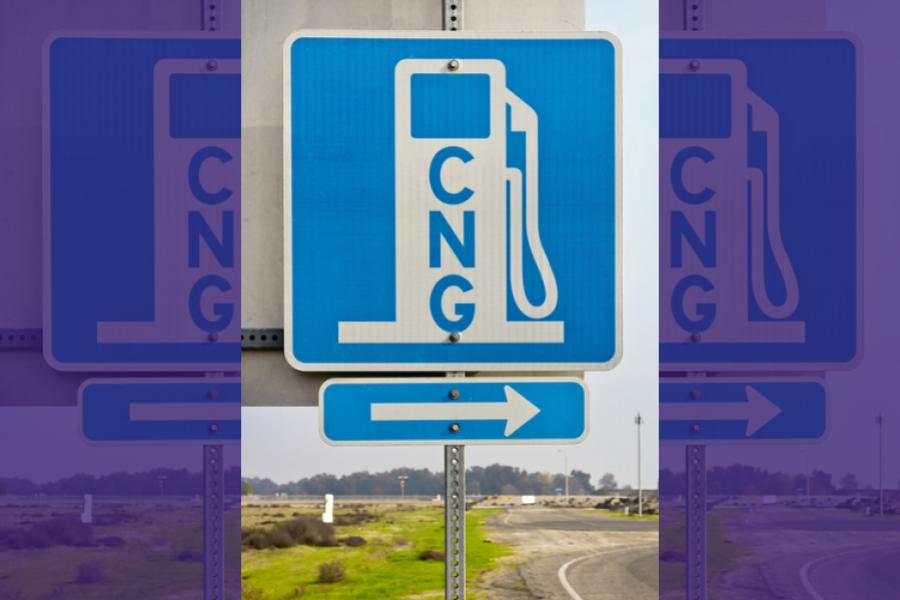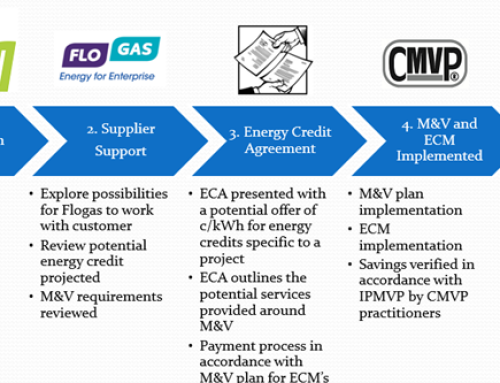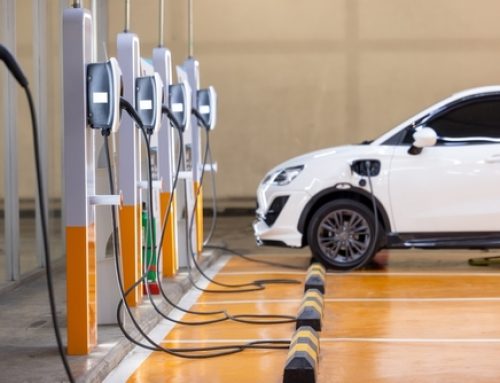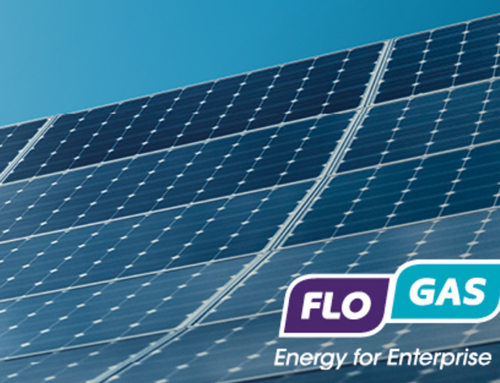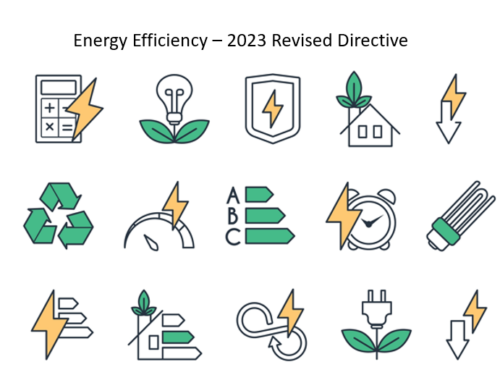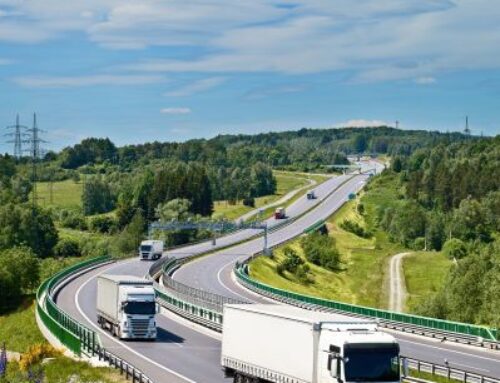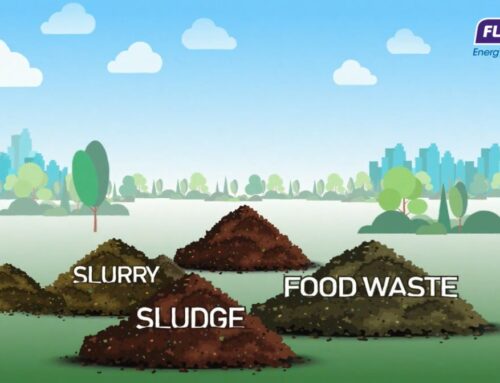Commercial fleets all over the world are converting from diesel fuel to more efficient and emission friendly fuels such as Compressed Natural Gas (CNG) which is a more predictable, cost-effective, and a cleaner solution for fuelling heavy goods fleets.
Here in Ireland, we have been making progress on this journey, the roll out of a network of public CNG fuelling stations has had an impact on meeting the demand from transport companies.
Most European cities have implemented CNG bus fleets. In Ireland we saw our first CNG bus trial in Cork at the end of March 2019. In Oct 2019 a customer of Flogas Enterprise (Formerly Naturgy) Virginia Logistics were the first haulier in Ireland to complete a zero carbon Heavy Goods Vehicle’s (HGV) delivery to Europe. The trucks were fuelled by Flogas Enterprise compressed renewable gas also known as Bio Compressed Natural Gas (CNG) to transport freight to the continent.
Public and private CNG refuelling stations are rolling out in the Irish market. There are currently seven CNG stations operational in Ireland and a further pipeline of nine stations are in planning and development with many haulage companies now establishing their own CNG fuelling stations and this trend is expected to continue in 2022. Hauliers are placing orders to update their HGV fleets to CNG to reduce their carbon footprint and make a difference in terms of the emission levels coming from the transport sector.
Compressed Natural Gas (CNG)
20% of Ireland’s total CO2 emissions comes from transport. This is the emissions from all cars and vans as well as heavy goods vehicles and bus fleets on our roads.
Of all the vehicles on the road in Ireland, 3% of these vehicles produce 20% of the emissions. These are the HGV’s and Bus fleets. This represents a huge opportunity for Ireland to make a difference in reducing our C02 emissions over the coming years.
CNG is a solution that can target the 17,000 HGVs and 10,000 buses currently on our roads in Ireland. Even by achieving a 25% conversion rate from diesel to CNG there is potential to eliminate 676,000 tonnes of CO2 using renewable gas which is the equivalent to removing 360,000 diesel cars.
The European & National Policy Alternative Fuels Directive Oct 2014 states that member states need to develop policies to promote alternative fuels in transport. This directive places binding objectives on Member States to develop necessary infrastructure including publication of a National Policy Framework.
The transport fuel business in Ireland is worth €3.5 billion per year and all from imported fuels. The opportunity is to use indigenous gas that comes from Corrib as well as future renewable gas production developed in Ireland to make a major impact on reducing our carbon emissions. This way we are ensuring our transport sector plays a part in Ireland reaching its 2030 emission targets.
Benefits of CNG to hauliers are; CNG produces the fewest emissions of all other fuels and contains significantly less pollutants than diesel. Traditionally CNG emits less CO2 than diesel and historically has shown substantial saving costs compared to diesel. This along with the potential to reduce maintenance costs as using a cleaner fuel means that the argument to move to CNG is very strong for transport companies.
Proven Technology
CNG is a proven technology and has seen strong growth throughout Europe over the past decade. It is not unusual to see CNG trucks across Europe and as this is an accepted from of fuel for most transport companies. Germany alone has 850 public CNG fuelling stations with many large haulage companies also having their own private fuelling stations. Fast fill CNG stations ensure that trucks can refill within 10 – 15 minutes like a diesel refill time.
Worldwide there are currently 19 million CNG vehicles on the road, Ireland is only just buying into the benefits of this technology. With the opening of numerous CNG fuelling stations in Ireland we will see this change quickly over the coming years. There are ambitious plans to have a network of public CNG fuelling stations in place across Ireland and this will be driven by demand from the transport sector, Gas Networks Ireland roll out plans and government policy.
Transport and Renewable Gas
Renewable gas (Biomethane) production will increase in Ireland over the coming years. Getting access to this renewable gas will be of huge significance to making an environmental impact on our transport emissions. Renewable gas will be a key source for CNG in the coming years as using renewable gas will have a massive impact on emission targets for the transport sector.
The recently published Climate Action Plan 2021 states that Ireland wishes to produce 1.6 TWh per annum of renewable gas for injection into the grid by 2030. The transport sector in Ireland has an opportunity to use this renewable gas as part of the CNG fleet and reduce their sector carbon footprint significantly.
As a roadmap for the transport sector, it is possible that hydrogen may become the primary fuel for transportation at some point in the future. Until then, CNG and renewable gas are the bridge to a hydrogen and zero carbon objective.
Flogas Enterprise supplies 100% renewable electricity and works with various stakeholders to ensure a clean energy future for Ireland working with our customers in Ireland and Northern Ireland with a renewable energy strategy that suits their business needs.
Barry Murph, Commercial Director, Flogas Enterprise
Contact the team and learn how we can meet your energy needs: enterprise@flogas.ie + 353 1 884 9400.


